BIOGRAPHY
| Baek, Sehee | I want to die but I want to eat tteokbokki |
| Campbell, Olivia M. | Women in white coats |
| Hollander, Julia | Why we sing |
| Olubas, Brigitta | Shirley Hazzard |
| Perry, Alex | The good mothers |
| Simons, Margaret | Tanya Plibersek |
| Smith, Stephen A. | Straight shooter |
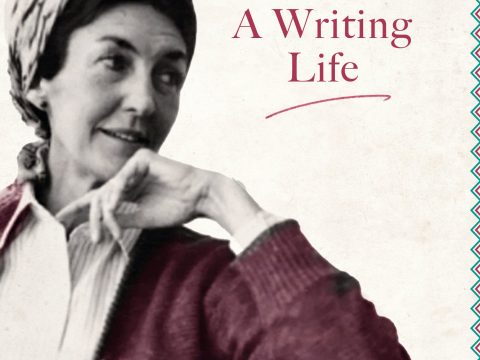 Shirley Hazzard: A Writing Life by Brigitta Olubas
Shirley Hazzard: A Writing Life by Brigitta Olubas
A woman raised in tumult seeks a higher realm in art and literature in this rich biography from Olubas (Shirley Hazzard: Literary Expatriate and Cosmopolitan Humanist). Born in Australia in 1931, Hazzard had an “unhappy childhood” and “embarked early on a project of self-cultivation and self-creation through extensive and passionate reading.” That culminated, the author writes, in her marriage to the well-heeled Francis Steegmuller, a Flaubert scholar and translator 25 years her senior, as it cemented Hazzard’s social position and offered her financial security. Of strong opinions, Hazzard roundly condemned Nixon as “Satanic,” while calling Reagan “a new dimension of blatancy in evil.” The book’s chief charm, however, lies in documenting Hazzard’s witnessing the span of the 20th century—as Hazzard herself wrote to a friend, “I saw Hiroshima in ruins, I knew a Hong Kong without skyscrapers… heard Eliot read The Four Quartets… walked about a blitzed but marvellous London.” All of this became fodder for Hazzard’s well-received stories, essays, and novels. Olubas does a fine job dealing frankly with those who disliked Hazzard’s “elitism” as well as those who praised her, with a careful touch for capturing the “implicit misogyny” she was up against. Hazzard emerges as intelligent, complex, and determined—fans of her work should check out this insightful portrait. Publisher’s Weekly, August 2022
Return to top
GENERAL FICTION
| Amidon, Stephen | Locust Lane |
| Atwood, Margaret | Old babes in the woods |
| Au, Jessica | Cold enough for snow |
| Awad, Mona | Bunny |
| Baker, Jo | The midnight news |
| Baldacci, David | Simply Lies |
| Banwo, Ayanna Lloyd | When we were birds |
| Barry, Sebastian | Old God’s time |
| Bennett, Claire-Louise | Checkout 19 |
| Candlish, Louise | The only suspect |
| Catton, Eleanor | Birnam Wood |
| Coben, Harlan | I will find you |
| Collins, Rijn | Fed to red birds |
| Dalgarno, Paul | A country of eternal light |
| DeWitt, Helen | The last samurai |
| Donoghue, John | The Death’s Head Chess Club |
| Freud, Esther | I couldn’t love you more |
| Kalagian Blunt, Ashley | Dark mode |
| Knoll, Jessica | Luckiest girl alive |
| Lam, Vincent | On the ravine |
| Littlewood, Fran | Amazing Grace Adams |
| Lowe, Ali | The running club |
| Mackay, Hugh | The Therapist |
| Mackintosh, Sophie | Cursed bread |
| Makkai, Rebecca | I have some questions for you |
| McPherson, Kira | Higher education |
| Oyamada, Hiroko | Weasels in the attic |
| Ross, Leone | This one sky day |
| Rushdie, Salman | Victory city |
| Scott, Ronnie | Shirley |
| Slocumb, Brendan N. | The violin conspiracy |
| Smith, Dominic | Return to Valetto |
| Steel, Danielle | Worthy opponents |
| Thompson, Michael | How to be remembered |
| Yarwood, Dianne | The wakes |
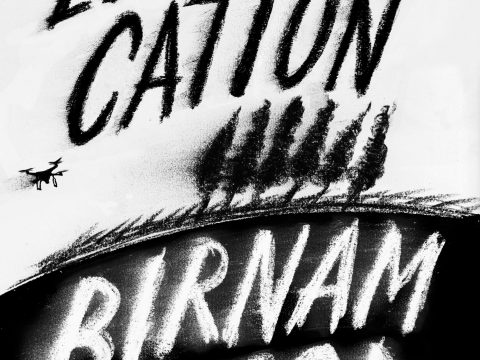 Birnam Wood by Eleanor Catton
Birnam Wood by Eleanor Catton
Booker winner Catton (The Luminaries) returns with a tragic eco-thriller of betrayed ideals and compromised loyalties involving a collective of guerilla gardeners in New Zealand. The group, Birnam Wood, sets its sights on a farm in Korowai National Park after a landslide maroons the isolated township of Thorndike, and three personalities vie for control. As matriarch Mira Bunting, 29, uses a series of aliases to scout and buy the land, her duplicity brings her into conflict with the younger Shelley Noakes, whose own beliefs are further strained by the return of ex-member Tony Gallo, a would-be journalist with an ax to grind regarding some of Birnam’s rhetoric (in a scene of stellar dialogue, a group of members, all white and economically privileged, object to Tony’s claims that intersectionality and polyamory are capitalist concepts). Mira’s and Shelly’s designs on the farm are complicated as they run afoul of Robert Lemoine, an amoral American billionaire suspected of murdering his wife, who has secretly purchased the land and agrees to fund Birnam Wood’s occupation as a cover for his mining operation (Robert’s work had caused the landslide, a detail he’s trying to keep under wraps). As Mira plays into Robert’s hands, Tony goes on the warpath, and their various schemes collide in a shocking crime. Catton injects granular details into her depiction of mining’s impact on the land and those who tend to it, and she pulls a taut, suspenseful story from the tangle of vivid characters. Thanks to a convincing backdrop of ecological peril, Catton’s human drama is made even more acute. Publisher’s Weekly, January 2023
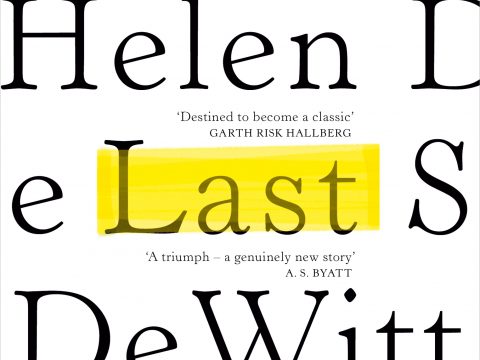 The Last Samurai by Helen DeWitt
The Last Samurai by Helen DeWitt
DeWitt’s ambitious, colossal debut novel tells the story of a young genius, his worldly alienation and his eccentric mother, Sibylla Newman, an American living in London after dropping out of Oxford. Her son, Ludovic (Ludo), the product of a one-night stand, could read English, French and Greek by the age of four. His incredible intellectual ability is matched only by his insatiable curiosity, and Sibylla attempts to guide her son’s education while scraping by on typing jobs. To avoid the cold, they ride the Underground on the Circle Line train daily, traveling around London as Ludo reads the Odyssey, learns Japanese and masters mathematics and science. Sybilla uses her favorite film, Akira Kurosawa’s classic Seven Samurai, as a makeshift guide for her son’s moral development. As Ludo matures and takes over the story’s narration, Sibylla is revealed as less than forthcoming on certain topics, most importantly the identity of Ludo’s father. Knowing only that his male parent is a travel writer, Ludo searches through volumes of adventure stories, but he is unsuccessful until he happens upon a folder containing his father’s name hidden in a sealed envelope. He arranges to meet the man, pretending to be a fan. The funny, bittersweet encounter ends with a gravely disappointed Ludo, unable to confront his father with his identity. Afterward, the sad 11-year-old resumes his search for his ideal parent figure. Using a test modeled after a scene in Seven Samurai, he seeks out five different men, claiming he is the son of each. While energetic and relentlessly unpredictable, the novel often becomes belabored with its own inventiveness, but the bizarre relationship between Sibylla and Ludo maintains its resonant, rich centrality, giving the book true emotional cohesion. Publisher’s Weekly, September 2000
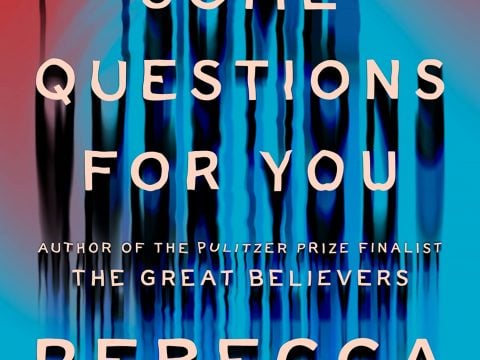 I Have Some Questions for You by Rebecca Makkai
I Have Some Questions for You by Rebecca Makkai
Makkai returns after her Pulitzer-finalist The Great Believers with a clever and deeply thoughtful story involving a 1990s boarding school murder and its repercussions decades later. Bodie Kane, a successful 40-year-old podcaster, returns from Los Angeles to her alma mater in New Hampshire in 2018 to teach. After two of her students team up on a Serial-like podcast about the killing of Thalia Keith, whose murder was pinned on the school’s Black athletic trainer, Omar Evans, questions are raised about the state’s flimsy case against Omar and Thalia’s classmates’ racist assumptions about his guilt. Meanwhile, Bodie reexamines her own understanding of what happened, and comes to grips with the predatory behavior of her and Thalia’s beloved music teacher. Just as Makkai brought a keen perspective to the 1980s with her previous novel, she does a brilliant job here at showing how in the ’90s girls were conditioned to shrug off sexual assault. A steady stream of precise, cringe-inducing period details—Thalia’s manipulative jock boyfriend belts out “Come to My Window” while drunk—prove the reader’s in good hands. A final act, set in spring 2022, brings more of the classmates together for a deliciously complex reckoning. This is sure to be a hit. Publisher’s Weekly, October 2022
Return to top
HISTORICAL FICTION
| Colin-James, Sally | One illumined thread |
| Harrod-Eagles, Cynthia | The secrets of Ashmore Castle |
| Smith, Simon | A man of honour |
| Williams, Pip | Bookbinder of Jericho |
Return to top
MYSTERY
| Bannalec, Jean-Luc | The King Arthur case |
| Beaton, M. C. | Death of a traitor |
| Black, Cara | Three hours in Paris |
| Box, C. J. | Storm watch |
| Brett, Simon | Death and the decorator |
| Callaghan, Jo | In the blink of an eye |
| Conroy, Vivian | Mystery in Provence |
| Crutchley, Nikki | In her blood |
| Fields, Helen | The last girl to die |
| Fox, Candice | Fire with fire |
| Gold, Robert | Eleven Liars |
| Green, John M. | Double deal |
| Kovacic, Katherine | Seven sisters |
| Leon, Donna | So shall you reap |
| Lynch, Rachel | Sudden death |
| McCall Smith, Alexander | The enigma of garlic |
| McKenzie, Dinuka | Taken |
| Patterson, James | 23rd midnight |
| Perry, Thomas | Murder book |
| Qiu, Xiaolong | Becoming Inspector Chen |
| Rose, Karen | Cold-blooded liar |
| Todd, Charles | The cliff’s edge |
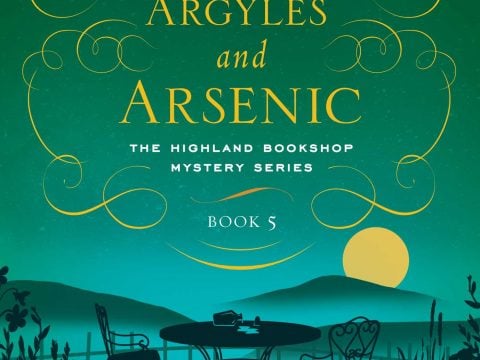 Argyles and Arsenic by Molly MacRae
Argyles and Arsenic by Molly MacRae
In MacRae’s witty if flawed fifth Highland Bookshop mystery (after 2021’s Heather and Homicide), American Janet Marsh and her crew of fellow expats at the combination bookstore/tearoom Yon Bonny Books have already proven themselves adept investigators of suspicious goings-on in their little Highland town of Inversgale. In fact, they have such a reputation that the locals have christened them SCONES—Shadow Constabulary of Nosy, Eavesdropping Snoops. So when Wendy Erskine, director of Inversgale’s history museum, dies of arsenic poisoning at Violet McAskill’s grand Fairy Flax Hall decluttering party, Constable Norman Hobbs asks the group to do a little unofficial detecting on the q.t. He’s been sidelined on the investigation since his grandmother is one of the suspects. MacRae revels in clever wordplay and banter, but the meandering murder investigation is hard to follow, and the reveal seems like an afterthought. Cozy lovers who come for the atmosphere and the camaraderie will enjoy themselves. What’s not to like about a knitting competition, Scottish scenery, books, and scones? Publisher’s Weekly, December 2021
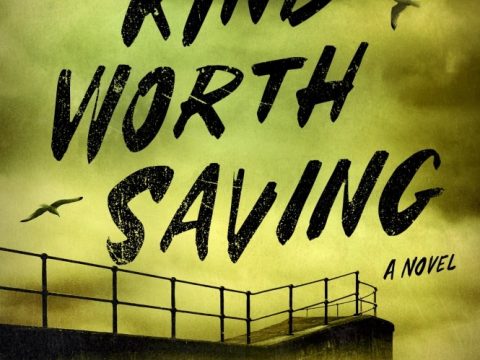 The Kind Worth Saving by Peter Swanson
The Kind Worth Saving by Peter Swanson
Bestseller Swanson (Nine Lives) cleverly plays with genre conventions in this twist-filled mystery. Boston PI Henry Kimball’s two previous jobs had bad endings. He’d been a Massachusetts high school English teacher but left after a student pulled a gun and killed a classmate before turning the weapon on himself, leaving Kimball tormented by thoughts he could have prevented those deaths. His time with the Boston PD ended after he formed an unhealthy obsession with a homicide suspect, penning “multiple unsavory limericks about her.” Kimball’s past resurfaces when he’s retained by former student Joan Whalen, who wants him to prove that her real estate broker husband, Richard, is unfaithful. The detective isn’t convinced that his client is being completely truthful. Flashbacks to the couple’s first interactions when they were teenagers and their families were both vacationing in Maine up the ante, as does Kimball’s discovery of two bodies in an uninhabited house with a for sale sign outside. Swanson’s especially good at capturing the complexity of Kimball’s inner life. Readers will be hard-pressed not to devour this in one sitting to ascertain whether, and how, past and present connect. Publisher’s Weekly, December 2022
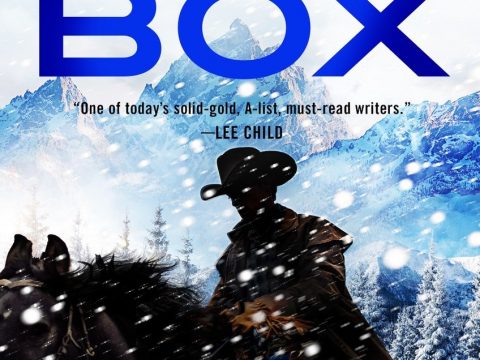 Storm Watch by C.J. Box
Storm Watch by C.J. Box
At the start of Edgar winner Box’s outstanding 23rd Joe Pickett novel (after 2022’s Shadows Reel), the Wyoming game warden comes across a grisly scene after pursuing an injured elk: inside an isolated ranch outbuilding there’s a body of a man with the top of his head missing. With a snowstorm fast approaching, Joe has time only to remove the man’s wallet and take some photos with his phone. The lazy local sheriff offers little help, and the body of the victim, a University of Wyoming professor according to the ID in his wallet, is gone when Joe returns to the scene. It becomes clear that higher-ups want Joe to stay away from the case. Joe soon has another crime to deal with—a gang has been gathering “sheds,” the antlers that bull elks shed each spring, out of season. Meanwhile, Joe’s falconer buddy, Nate Romanowski, is suspicious of a shadowy figure keen on persuading him to join an anti-government group. The suspense builds as the various story lines neatly intersect on the way to a tense confrontation between two of the most powerful politicians in Wyoming. Box is writing at the top of his game. Publisher’s Weekly, November 2022
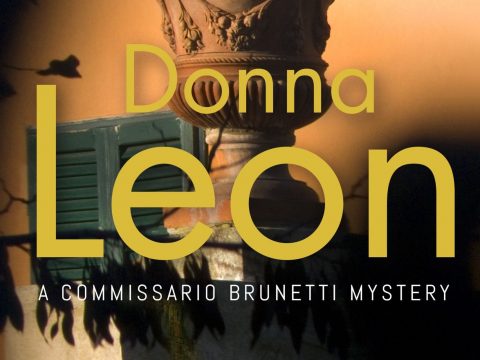 So Shall You Reap by Donna Leon
So Shall You Reap by Donna Leon
The torture murder of an undocumented Sri Lankan immigrant, whose body was dumped in a Venice canal, drives bestseller Leon’s enjoyable 32nd outing for Commissario Guido Brunetti (after 2022’s Give unto Others). The man had been living in a converted garden home behind a decaying palazzo, where Brunetti had met him the day before. Brunetti was inquiring whether the palazzo owned by a university professor was for sale. With no official record the man even existed, Brunetti taps into Venice’s gossip chain and the memories of longtime residents to investigate. He comes to suspect that the death may be related to Italy’s complicated history and politics. Along the way, Brunetti is reminded that Venice is basically a small town where “everyone… knows something about everyone.” Brunetti’s respect for his squad, coupled with his detectives’ regard for him, plays a major part in the crime solving, while the portrait of his strong marriage and solid relationship with his family serves to reinforce his beloved character. As usual, the rich backdrop of Venice complements the well-designed plot. Leon shows no signs of losing steam. Publisher’s Weekly, December 2022
Return to top
NON FICTION
| Biegler, Paul | Why does it still hurt? |
| Dolby, Karen | The wicked wit of Prince Philip |
| Hannett, Lisa L. | Viking women |
| Morris, Shireen | Statements from the soul |
| Mundine, Warren | Beyond belief |
| O’Toole, Fintan | We don’t know ourselves |
| Roques, Dominique | In search of perfumes |
| Rovelli, Carlo | Anaximander |
| Ihimaera, Witi | Parakau |
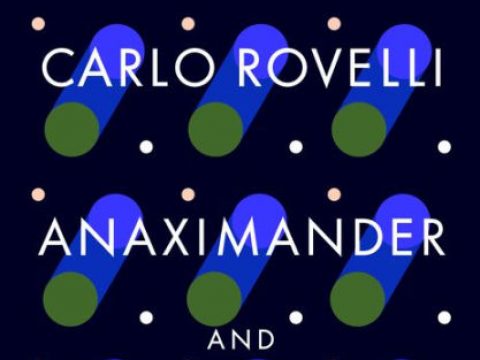 Anaximander: And the Birth of Science by Carlo Rovelli
Anaximander: And the Birth of Science by Carlo Rovelli
Theoretical physicist Rovelli (There Are Places in the World Where Rules Are Less Important than Kindness) delivers an insightful survey of the scientific contributions of Greek philosopher Anaximander (610–545 BCE). Anaximander, Rovelli contends, generated the “first great conceptual revolution” in science by proposing naturalistic explanations of the universe that refuted common accounts relying on gods and myths. According to Anaximander, the cosmic order came into existence after “hot and cold separated,” causing a “ball of flame” to amass around the Earth and dry up the water that originally covered the planet. Though some theories will sound outlandish to modern readers (Anaximander thought that celestial bodies moved on giant wheels “filled with fire”), others are impressively forward-thinking, such as Anaximander’s suggestion that Earth is suspended in a void and humans evolved from “fishlike creatures” that adapted to live on land. As Rovelli notes, the only surviving accounts of Anaximander’s writings are secondhand, meaning that definitive evidence about his life and work is hard to come by, but Rovelli makes the most of the available evidence in building his case that the philosopher’s emphasis on natural causes marked a sea change in human thought. This is a masterful overview of a pivotal figure in scientific history. Publisher’s Weekly, December 2022
Return to top
POETRY
| Oliver, Mary | Felicity |
| Papertalk-Green, Charmaine | False claims of colonial thieves |
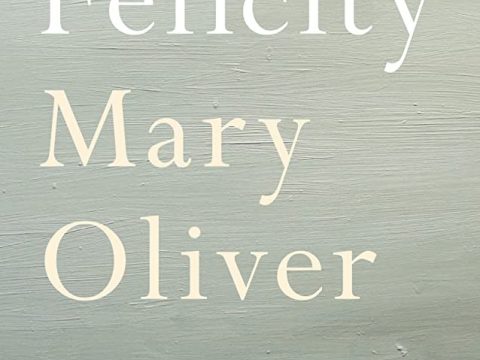 Felicity by Mary Oliver
Felicity by Mary Oliver
“Only if there are angels in your head will you ever, possibly, see one,” writes Pulitzer Prize–winner Oliver (Dog Songs) in a collection that serves as an ecopoetic, transcendentalist guidebook for the wandering soul. Replete with endearing adages and prophetic wisdom, and subdivided by Rumi quotes, Oliver’s three sections—”The Journey,” “Love,” and “Felicity”—follow the guiding voices of nature and sacred love. She expresses gratitude for the embrace of her partner—“I can’t remember/ everything—// so many years!/ Are the morning kisses/ the sweetest/ or the evenings// or the inbetweens?/ All I know/ is that ‘thank you’ should appear/ somewhere”—and explains that humans’ need for embrace is why “the body/ gladly lingers in the wind or the rain” when one is lonely. Leading readers to appreciate the overlooked all around them, Oliver takes notice of birds, assured that “the reason they can fly” is because they own nothing. She also looks toward a cricket who no longer sings, redeeming him in his late age by reminding readers that this silence “doesn’t mean/ he hasn’t been an excellent cricket/ all his life.” Oliver’s longtime fans and those who seek spiritual renewal will find themselves a worthy guide in this sagacious, pantheistic read. Publisher’s Weekly, September 2015
Return to top
SCIENCE FICTION & FANTASY
| Bardugo, Leigh | Hell bent |
| Carey, M. R. | Infinity Gate |
| Huff, Tanya | Into the Broken Lands |
| Newitz, Annalee | The Terraformers |
 Hell Bent by Leigh Bardugo
Hell Bent by Leigh Bardugo
Bestseller Bardugo, best known for her YA Grishaverse novels, returns to the more adult struggles of Alex Stern, low-level L.A. drug dealer turned Yale scholarship student thanks to her ability to see and corral ghosts (“Grays”), in this thrilling sequel to 2019’s Ninth House. Now employed as a Virgil by Lethe House, the Yale body that oversees the magical rituals of the campus’s many secret societies, Alex is pulled in several directions as she tries to fill the role left empty when her upperclassman mentor, Darlington, was sent to Hell by a diabolical dean. Ignoring her patrons’ instructions to move on, she persists in digging into the secrets of Lethe’s past, searching for a way to open a portal and bring Darlington back. Alex’s own past will not stay hidden either; her L.A. supplier, Eitan Harel, having learned of her ability, comes calling with jobs for her, including intimidating a strangely unaging former Yalie. Bardugo surrounds Alex with fascinating supporting players, among them a damaged New Haven cop and a naive roommate excited by the lure of the supernatural, while keeping the story’s drive firmly in Alex’s grip for another scrappy underdog tale. The taut plot, often grisly magic, lavish scene-setting, and wry humor combine to make this just as un-put-downable as the first installment. Readers will be wowed. Publisher’s Weekly, October 2022
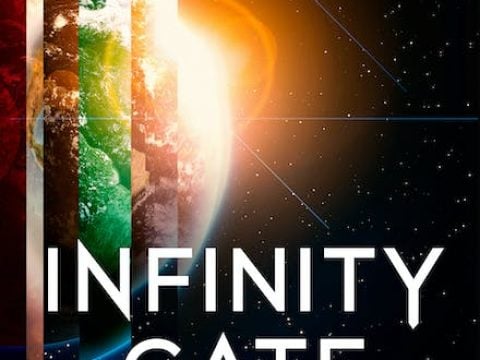 Infinity Gate by M. R. Carey
Infinity Gate by M. R. Carey
Carey (The Girl with All the Gifts) posits that the depletion of earth’s resources might be avoidable by raiding the “universe next door”—unless the neighbors complain loudly as they do in this brilliant dimension-hopping sci-fi thriller and Pandominion series launch. Hadiz Tambuwal, a scientist on a crash program to stave off Earth’s looming ecological collapse, discovers a gateway to alternate Earths that lack people, but offer clean air and water. Unfortunately, her explorations attract the attention of the Pandominion, a collective of Earth-hopping beings (not all of them human) who fear incursions from “Unvisited” dimensions and are enmeshed in a war with the Ansurrection, a unity of AI-driven robotic beings. Carey skillfully explores the moral complications of machine personhood as brilliant schoolgirl Topaz Tourmaline FiveHills befriends an Ansurrection infiltrator that seeks individuality, and Hadiz perfects her world-hopping device with help from Rupshe, an experimental AI. The stark choices of war or peace and environmental health or disaster are unsettlingly close to current-day issues, making this cosmos-spanning work a timely plea for planetary sanity. Readers will be wowed. Publisher’s Weekly, January 2023
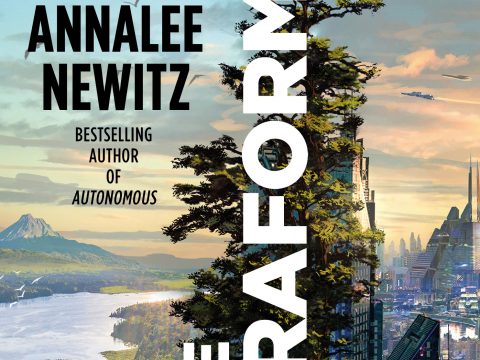 The Terraformers by Annalee Newitz
The Terraformers by Annalee Newitz
Newitz (The Future of Another Timeline) performs a staggering feat of revolutionary imagination in this hopeful space-opera built from three interconnected novellas. “Settlers” opens on Destry Thomas, a ranger with the Environmental Rescue Team on corporate-owned planet Sasky, as she stumbles on a fiercely independent underground society, Spider City. Discovery puts Spider City at risk, while showing Sasky’s surface-dwellers a new possible future. In “Public Works,” a crew of bots and hominins grows from uneasy colleagues to found family while trying to design a planetwide public transport network. They’re undermined at every step by their corporate overlords, until they reach Spider City, where every being is a person, and a radical new solution presents itself. “Gentrifiers” sees a planetwide housing crisis bring together a sentient train, Scrubjay, and Moose, a cat journalist. As unrest erupts across Sasky’s big cities, Scrubjay and Moose race to lend aid, in the process uncovering a shocking secret that could be key to breaking the corporate stranglehold over the planet. Newitz masterfully grapples with questions of embodiment and personhood, exploring the power of coalition and the impossibility of utopia under capitalism. With the ethos of Becky Chambers and the gonzo imagination of Samuel R. Delany, plus a strong scientific basis in ecology and urban planning, this feels like a new frontier in science fiction. Publisher’s Weekly, September 2022
Return to top
TRAVEL
| Sepeda, Toni | Brunetti’s Venice |
Return to top
New additions to eBooks at SMSA
EBOOKS
| General | Alderson, Sarah | The Cabin in the woods |
| General | Blackhurst, Jenny | The Hiking Trip |
| General | Bugler, Sheila | You Were Always Mine |
| General | Chen, Kirstin | Counterfeit |
| General | Gunty, Tess | The Rabbit Hutch |
| Mystery | Cleeves, Ann | The Girls on the Shore |
| Mystery | Fields, Helen | The Last Girl to Die |
| Mystery | Scarr, Louisa | Last Place You Look |
| Mystery | Sullivan, Tim | The Dentist |
| Mystery | Taylor, C. L. | The Guilty Couple |
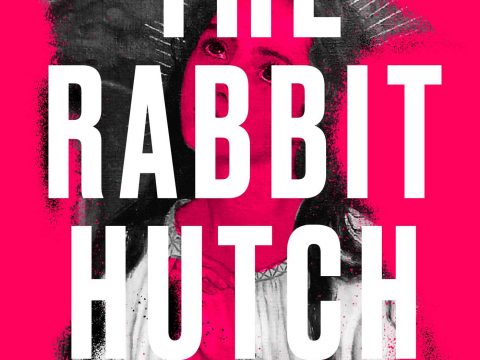 The Rabbit Hutch by Tess Gunty
The Rabbit Hutch by Tess Gunty
Gunty debuts with an astonishing portrait of economically depressed Vacca Vale, Ind., centered on the residents of a subsidized apartment building nicknamed the Rabbit Hutch. The main character is 18-year-old Blandine Watkins, who grew up in foster care and dropped out of high school in junior year. In the opening scene, she is stabbed in her apartment by an unidentified assailant. Gradually, the causes of the crime emerge, followed eventually by the facts, as well as her fate. Along the way, Gunty delves into the stories of Blandine’s neighbors, brilliantly and achingly charting the range of their experiences. An erotic flashback of an infant’s conception at a motel on higher ground in Vacca Vale called the Wooden Lady (“It’s like if manslaughter were a place,” one reviewer describes it), where married couple Hope and Anthony hole up during a “1,000-year flood,” contrasts with a devastatingly banal and ultimately traumatic sexual encounter between Blandine and her drama teacher the year before. There’s also a lonely woman who lives in a state of “flammable peace” due to her sensitivity to noise, with whom Blandine shares her fascination with Catholic mystics before going off to sabotage a celebration involving the city’s gentrification scheme with voodoo dolls and fake blood. It all ties together, achieving this first novelist’s maximalist ambitions and making powerful use of language along the way. Readers will be breathless. Publisher’s Weekly, July 2022
 Counterfeit by Kirstin Chen
Counterfeit by Kirstin Chen
Chen (Bury What We Cannot Take) spins a clever tale offering two sides of a story involving a complicated friendship and knockoff handbags. When Ava Wong’s former Stanford roommate Winnie Fang reenters her hectic San Francisco life, 20 years after graduation, Ava is the frazzled mother of a tantrum-prone two-year-old, married to a prominent surgeon, and on hiatus from a tax law career she can’t stand. Winnie, on the other hand, has gone from nerd to gorgeous—and she’s clearly rich. Ava, whose marriage is on the rocks, is dazzled by her friend’s physical and financial makeover, then finds out it’s all courtesy of a luxury handbag counterfeit scheme. While Ava is on an impulsive trip visiting family in Hong Kong, her husband cancels her credit and debit cards—leading Ava to reluctantly work with Winnie, whose goods come from China. The novel’s second half picks up with Winnie’s point of view, in which Ava is characterized as scheming and manipulative, making canny moves such as leaving a cellphone at a friend’s house to secure an alibi while trafficking contraband. Readers face a choice: whose perception is real—and whose is counterfeit? The story is further deepened by the author’s sharp, convincing details of the fashion industry and its shadow market, which lends this tale of fakes the tang of authenticity. Readers will be left guessing at the truth until the last page. Publisher’s Weekly, April 2022
Return to top
AUDIOBOOKS
| Historical | Joshi, Alka | The Henna Artist |
| Historical | Thornton, Stephanie Marie | Her Lost Words |
| Mystery | Archer, C. J. | The Medici Manuscript |
| Mystery | Blacke, Olivia | Vinyl resting place |
| Mystery | Heather Graham | Voice of Fear |
| Mystery | Krentz, Jayne Ann | Sleep no more |
| Mystery | Sparks, Leanne Kale | Every missing girl |
| Mystery | St James, Dorothy | A Perfect Bind |
| Mystery | Sullivan, Tim | The Cyclist |
| Mystery | Todd, Marion | Lies to Tell |
 Sleep no more by Jayne Ann Krentz
Sleep no more by Jayne Ann Krentz
What’s going on at the Carnelian Sleep Institute in the quiet college town of Carnelian, Calif.? That’s the question at the heart of this enticing romantic suspense novel and Lost Night Files series launch from bestseller Krentz (Lightning in a Mirror). Months before the start of the book, Pallas Llewellyn and two strangers, Talia and Amelia, all lost their memories of the exact same window of time while staying at Lucent Springs Hotel. Since then, the women have become friends and started the podcast that gives this series its name, using it to investigate what happened to them and explore other potentially paranormal cases. Ambrose Drake turns to this podcast for help after a disturbing experience. While participating in an overnight sleep study, he’s positive that he heard screams from the adjoining room and believes a fellow patient may have been murdered, though the medical staff assure him he was only dreaming. The stakes ratchet higher when institute assistant Emery Geddings mysteriously disappears, leading Pallas and Ambrose to investigate—with explosive results. Krentz’s plot is characteristically twisty and her characters are well-shaded. The cliffhanger ending will undoubtedly frustrate some readers, but it successfully builds anticipation for future installments. Readers will be on the edges of their seats. Publisher’s Weekly, October 2022
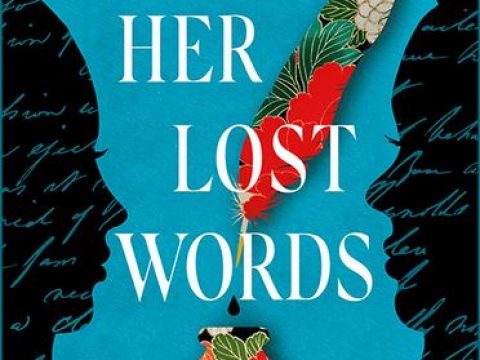 Her Last Words by Stephanie Marie Thornton
Her Last Words by Stephanie Marie Thornton
Thornton (A Most Clever Girl) chronicles the lives of two pioneering authors in this stirring narrative. Mary Wollstonecraft is introduced in 1775 as a teenager who is hungry, homeless, and bloodied at the hands of her father, having tried to protect her mother. She’s rescued by a family friend, Mrs. Clare, a reverend’s wife who had previously nurtured the girl’s yearning for knowledge by slipping her a new book to read every Sunday. Reverend Clare does his part to help Wollstonecraft find a better life by getting her a governess job. Wollstonecraft’s first position is short-lived, after she persuades her charges that their education is more important than finding a spouse, but her independent spirit eventually leads to literary success and influence. She dies in 1797 while giving birth to Mary, who adopts her mother’s perspectives on equal treatment for women and the importance of lifelong learning. Mary eventually marries poet and philosopher Percy Shelley, and writes the novel Frankenstein at 18, about a monster whose anger, fear, and sadness reflects her own inner turmoil. Thornton brings a sense of urgency to the women’s inner lives, as well as a fair amount of insight into their work. Much has been written about the authors, but Thornton does justice to their singular lives. Publisher’s Weekly, January 2023


